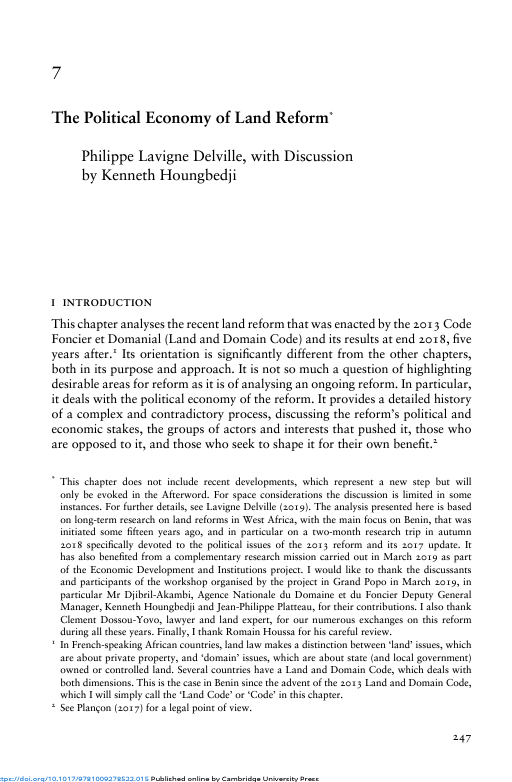Resource information
This chapter traces the complex trajectory of land tenure reforms in Benin since the democratic transition and liberalisation of the economy in the early 1990s. It shows that conceptions of the problem of land tenure insecurity and the responses to it have often clashed. Attention paid to sectors (rural vs urban) has varied as well as the timing and the nature of land tenure reforms. The solution of formal land titling propounded by international donor and local supporters has been considered by many as both inaccessible and unsuited to the needs of the majority of the population, hence the search for legal and institutional alternatives. This history of land reforms reveals intricate conflicts involving corporatist struggles, conflicts of interest between different stakeholders, and divergent social choices. It highlights the political economy dimension of land tenure problems and their instrumentalisation by some actors and competing public policy networks, the strengths and limitations of attempts to implement policy reforms, and the influence of donors in reform processes. It also questions the capacity of the intended reforms to modify practices and have enough inclusiveness.

